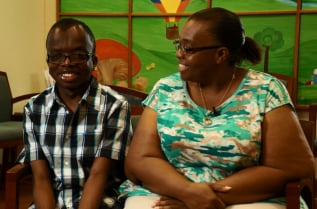This targeted panel include 96 mitochondrial DNA variants with known phenotypes. Below is a list of variants which are considered in the analysis. The variant “m.7445A>G” is located at the boundary of two genes, MT-CO1 and MT-TS1, and is commonly considered as two variants.
5 weeks
81479
$1,600
Mitochondrial disorders represent a clinically heterogeneous group of conditions caused by pathogenic variants in either nuclear or mitochondrial DNA (mtDNA). Some mitochondrial disorders affect a single organ while most involve multiple organ systems. Mitochondrial disorders may present at any age and often present with prominent neurologic and myopathic features. Mitochondrial disorders have variable penetrance and severity of symptoms depending on the level of mutant mitochondria, or heteroplasmy, within a given individual or tissue type.
For patients with clinical suspicion of a mitochondrial disorder, molecular testing is useful to confirm the diagnosis and to identify the disease-causing mutations within a family to allow for carrier testing. Individuals with Pearson syndrome or KSS and some patients with CPEO have large-scale (2-10 kb) mtDNA deletions, which will not be detected by the protocol used for this test.
Next Generation Sequencing
Variants included in this panel account for >80% of MELAS, ~90% of MERRF, ~95% of LHON, ~ 50% of NARP, and ~ 20% of Leigh Syndrome cases. Note: This test may not detect variants with a heteroplasmy of less than 10% using NGS. It is not possible to confirm all reported variants by Sanger sequencing because levels of mutant heteroplasmy 20% or lower may not be detected by Sanger. Additionally, levels of mutant heteroplasmy above 80% will appear homoplasmic by Sanger sequencing. Although this test is capable of collecting data on variants at other loci in the mitochondrial genome, it does not evaluate for variants other than those listed above. Additional variants which may be present in the patient are not reported with this test. Large deletions or duplications in the mitochondrial genome are not identified with the current sequencing protocol. As heteroplasmy levels vary from tissue to tissue, a negative blood test cannot completely rule out the chance that an individual carries a mtDNA variant that is either at very low heteroplasmy levels in blood or present in a different tissue type.
The preferred sample type is 3-5 ml of peripheral blood collected in an EDTA (purple top) tube. Extracted DNA and saliva are also accepted for this test. Saliva samples must be submitted in an approved saliva kit. Contact the lab to receive a saliva kit or to have one sent to your patient. Maternal testing is performed free of charge. Maternal samples can be banked upfront to allow reanalysis if a variant is identified in the patient. Or, a maternal sample can be obtained after a variant has been identified in the proband, at which time an updated report will be issued for the patient.
The specimen should be kept at room temperature and delivered via overnight shipping. If shipment is delayed by one or two days, the specimen should be refrigerated and shipped at room temperature. Do not freeze the specimen. Samples collected on Friday can be safely designated for Monday delivery.
Call our laboratory at 1-800-473-9411 or contact one of our Laboratory Genetic Counselors for assistance.
Robin Fletcher, MS, CGC
Falecia Thomas, MS, CGC
Alex Finley, MS, CGC
